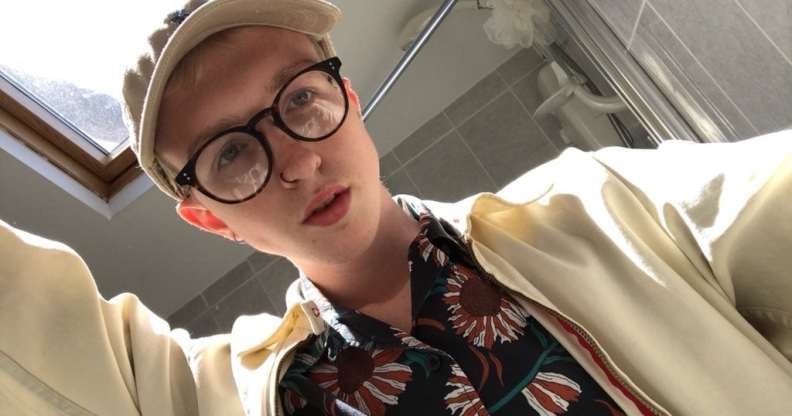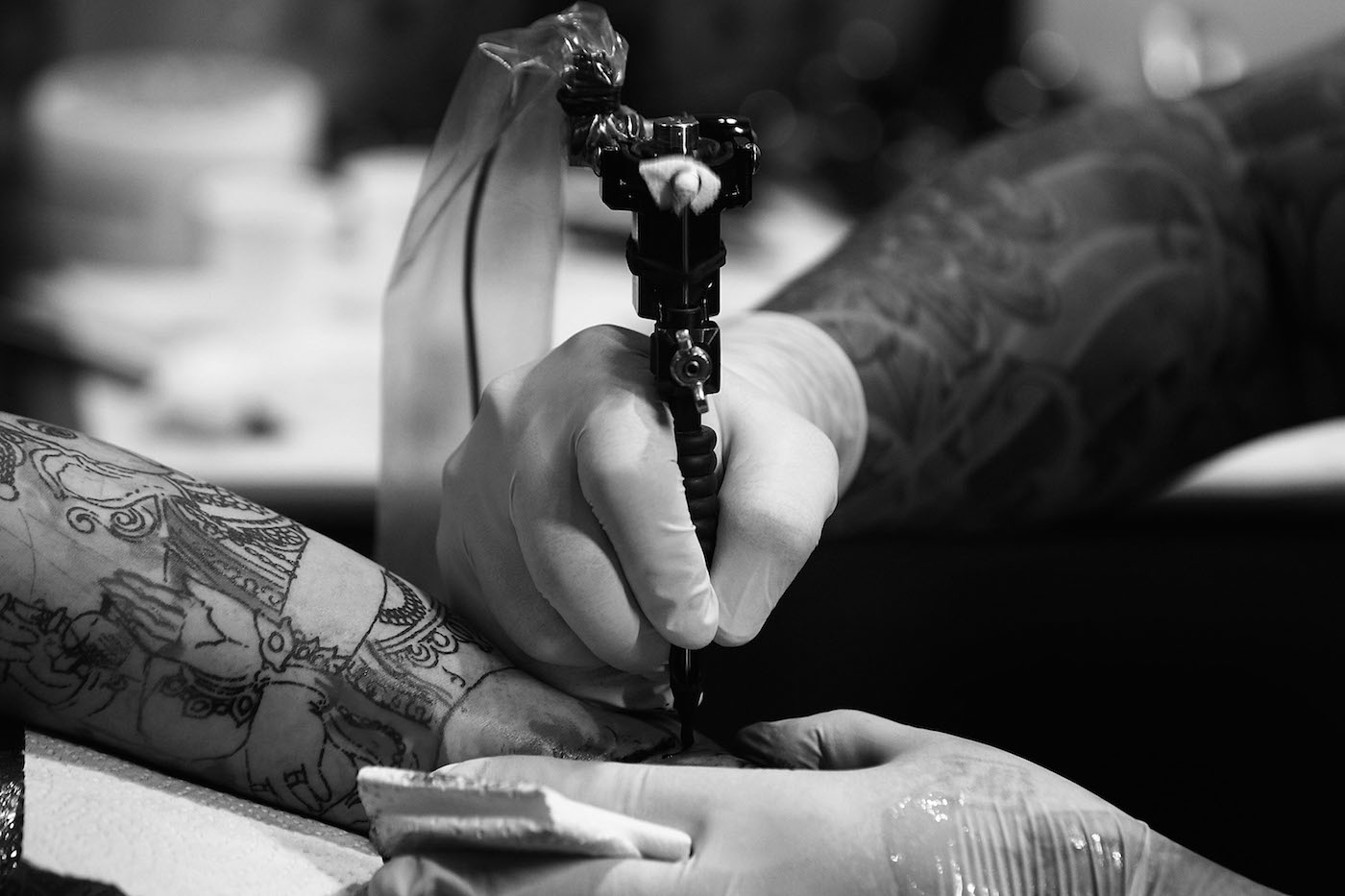Gay man refused tattoo because he’s HIV-positive

Student George Westwood says he was refused tattoo (Credit: George Westwood)
A gay man says he was refused service at one of the UK’s biggest tattoo studios – because he is HIV-positive.
George Westwood, a 19-year-old Sociology student at the University of Birmingham had gone to the Vida Loca studio in Bolton, Greater Manchester, to get a tattoo representing his journey with HIV.
The student told the business about his HIV status as a courtesy after paying his deposit, only for them to refuse to serve him because of it.
Although his tattooist apologised, she said that her manager would not let her carry out the procedure – and that he would have to collect his deposit back.
Westwood told PinkNews: “I rang them and told them about my status and the tattoo artist said she wasn’t sure if she was going to be able to do it, so she would speak to her boss.
“I received a phone call [on May 26] to say, ‘No, we can’t do it.’ I wasn’t offered any explanation and [told] that I should just go and collect my deposit.”
The 19-year-old student was left shocked and upset at the refusal.

George Westwood was diagnosed in February (Credit: George Westwood)
“I was just expecting a ‘thanks for letting us know,’ I didn’t think there was anything wrong with it. But I got a completely different response to what I expected.
“It did upset me, it did shock me – I nearly cried at work.”
He added: “I feel like I’ve made so much progress in such a short space of time, and it feels like all that progress has been thrown back in my face.”
Westwood says that the incident has highlighted why he wants to raise awareness around the condition.
He said: “It’s something so trivial – it just doesn’t need to happen.
“People need to think about and realise how much progress we [HIV-positive people] have made. It’s not what people think it is, and it’s definitely not what it used to be and people living with it do lead healthy normal lives.”
Now, Westwood hopes that talking about his illness will challenge the misconceptions around it and wants to emphasise that the condition cannot be passed on if effectively treated.
In response to a complaint made by Westwood, Vida Loca tattoo studio said: “We have to take into consideration the risks involved with blood transfer as we are using needles that have to be disposed of.”
“In the last month alone, we’ve had accidents where tattooists have caught themselves with used needles, so we have to think about the risk involved and as careful as hygienic as we are accidents still happen. Hope this explains why we cannot go ahead with this tattoo,” the response, which PinkNews has seen, continued.
However, Dr Michael Brady, medical director at Terrence Higgins Trust, said: “There’s absolutely no reason to treat someone living with HIV who wants a tattoo any differently. Although HIV can be transmitted through shared needles, there are no documented cases of HIV transmission due to tattooing.

Tattoo enthusiasts at 2013 Sydney Tattoo Body Art Expo (Getty)
“Any reputable tattoo parlour should already be taking precautions to protect their customers against infections, including using fully sterilised equipment and single-use, disposable needles.”
According to the health section of its website, this is the procedure that the studio complies with.
Under the 2010 Equalities Act, it could be illegal in some cases for a business to not serve someone with HIV under the same terms as someone without the disease.
In an email statement to PinkNews, Daniel Watson, owner of the Vida Loca tattoo shop, said: “It’s the artist’s choice who they do or don’t tattoo, and in this circumstance I fully support her decision.
“There are many factors which led her to this decision. One of them mainly being we are not covered by our insurance to tattoo someone with HIV. Then the risk of her catching herself with the needle during or after the procedure. Or another member of the staff that cleans down the station catching themselves with the infected needle.
“There is also risk for the customer receiving the tattoo. If their immune system is low due to the treatment they will be receiving the chance of infection would also be very high. Why risk all this just so one person could get a tattoo.”
Westwood was diagnosed with the disease in February, after being referred to a clinic when a self-testing kit came back positive.
“It’s been quite an emotional journey quite challenging,” he said.
“But I’ve come out of it a stronger person, now I’m just trying to raise awareness and educate people.
“Even in the gay community there’s a massive taboo about HIV, we don’t talk about it, we don’t touch it.”

However, Westwood says he is still going to get a tattoo. It will be a line tattoo of a sunrise over the sea to signify new horizons and the journey he has been on with HIV.
In March, PinkNews reported of a HIV-positive man who was refused service at a dentist’s practice in the East Midlands.
The man launched a funding appeal to take legal action against the practise.
The practice apologised and has since changed its policy on treating HIV-positive patients.
Stigma against the illness is common, with the Terence Higgins Trust estimating that one in five Brits would not wear a red ribbon on World AIDS Day, due to fear others would think negatively of them.

